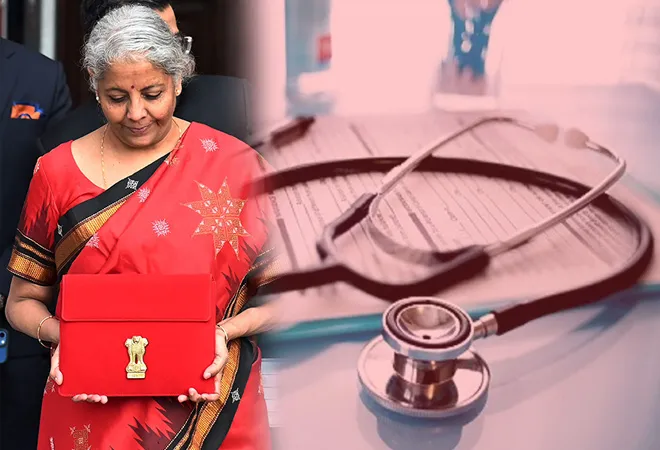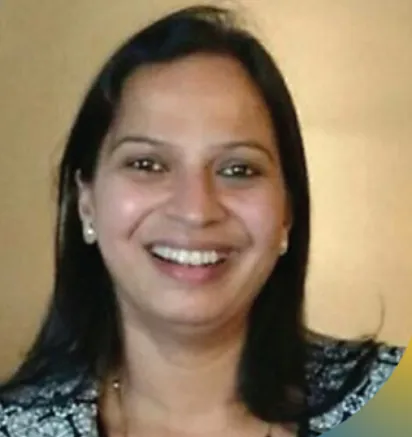-
CENTRES
Progammes & Centres
Location
There is scope to do more for the vital constituencies of women and children

This piece is part of the essay series, Amrit Kaal 1.0: Budget 2023
For India to achieve the sustainable development goals (SDGs) as well as economic and social reforms, it is essential to empower and safeguard the 67.7 percent of women and children in the country by ensuring their healthy development in a safe and secure environment. Of this number, women make up for 48 percent and contribute 18 percent of the country's GDP; thus, much has to be done to solve the difficulties they face. The pandemic has further added to the economic and social woes for women with 47 million women and girls having been pushed into extreme hunger. India has a social and legal obligation to provide its citizens with a dignified existence by assuring their access to food and nutritional security by making a sufficient supply of high-quality food grains available.
Budget 2023 fails to address the financial and resource issues affecting nutrition interventions, given the consistently high rates of malnutrition in India. The significant food security programmes have seen slight gains, which might not accurately reflect the actual needs of the programmes, given the ongoing underfunding. Additionally, the budgetary provisions are insufficient to pay frontline workers (Anganwadi workers), who carry out crucial nutrition activities.
India has a social and legal obligation to provide its citizens with a dignified existence by assuring their access to food and nutritional security by making a sufficient supply of high-quality food grains available.
In order to address malnutrition issues and to promote women empowerment, child development and protection, the Budget 2022 announced an umbrella scheme under the Ministry of Women and Child Development to be implemented in Mission mode: Mission Poshan 2.0<1>, Mission Shakti, and Mission Vatsalya. During the Financial Years 2021–22 to 2025–26, the Government of India also approved upgrading 2 lakh Anganwadi Centers (AWCs) to Saksham Anganwadis at a rate of 40,000 each year.
Saksham Anganwadi<2> and POSHAN 2.0<3> under the Mission Poshan 2.0, brings together under one umbrella the ICDS, POSHAN Abhiyaan, Scheme for Adolescent girls, and National Creche Scheme, and has been alocated INR 20,554.31 crores of the total allocated INR 25,448.75 crores in 2023-24. This shows an increase of INR 267 crore from the INR 25,172.28 crore allotted in 2022-23. The graph below indicates the comparative allocation of funds under Saksham Anganwadi and Poshan 2.0 and the overall Ministry of Women and Child Development. It indicates a marginal rise over the years.
The Union Budget 2023-24 is disheartening with a meagre 1.08 percent increased allocation for crucial social security programmes for women and children despite the challenges faced by them. PM-Poshan<4> (renamed mid-day meal scheme) received an outlay of INR 11,600 crore in 2023-24 from INR 10,233 crores in 2022-23; it was increased by 13 percent but it decreased as to the revised estimates.
The budget for Mission Shakti, which houses the Pradhan Mantri Matru Vandana Yojana, Women Helpline, Beti Bachao Beti Padhao, and other important programmes for the protection of women, declined by 1.2 percent from INR 3,184.11 in 2022-23 to INR 3143.96 crore in 2023-24.
The Pradhan Mantri Matru Vandana Yojana (PMMVY)<5> has been underfunded since it began in 2017. As against the requirement of INR 14,000 crore as per the National Food Security Act (NFSA) mandate, the allocation/budget estimate for 2023-24 has been a scanty INR 2581.96 crores.
The Food Subsidy programme that ensures distribution of food grains at a subsidised price through the Targeted Public Distribution System (TPDS) has been slashed by 32 percent in the 2023-24 budget to INR 1,97,350 crore from INR 2,06,831 crore allocated during the financial year 2022-23. The graph below indicates the food subsidy allocations (estimated and revised) since budget 2019-20, 2020-21, 2021-22, 2022-23 and 2023-24. It clearly shows the lowest allocation to food subsidy since 2019-20, pre pandemic time. Food subsidies were planned by the Centre for financial year 2022-23 at INR 2,06,831 crore, but the revised estimate reveals that they actually increased by approximately 39 percent to INR 2,87,194 crores as a result of the Centre's continued implementation of the free grains programme under the Pradhan Mantri Garib Kalyan Anna Yojana (PMGKAY). However, in her budget speech 2023-24, the Finance Minister announced the continuation of the free food distribution scheme for the year despite the drop in fund allocation.
The three key nutrition-related programmes of the reorganised Umbrella Integrated Child Development Services (ICDS) have been given a budgetary allocation of INR 20,554 crore in the most recent budget. These include the Anganwadi Services Scheme, POSHAN Abhiyaan (National Nutrition Mission), and the Scheme for Adolescent Girls. These programmes guarantee that three demographic groups—children aged 0 to 6 years, adolescent girls, and pregnant and nursing women—will get direct dietary interventions. The marginal increase from the budget estimates for the previous year is grossly inadequate considering funding trends over the past years and the need for additional human resources for service delivery.
Malnutrition is a complex issue with roots in a number of dietary, health, and care-related variables, that are in turn influenced by social, economic, and political variables. Therefore, associated issues like food security, access to healthcare services, sanitary conditions, and jobs must also receive adequate funding and not be dealt with in silos. The nutrition sensitive programmes like PM-Poshan, National Health Mission, Food Subsidy, Mahatma Gandhi National Rural Employment Guarantee Scheme, and National Rural Drinking Water Mission have seen a decline from the previous year’s revised budget (RE) (figure below).
The budget 2023 seems to disregard women and children despite them being severely impacted by the pandemic and economic crisis. With an insignificant increase in Saksham Anganwadi and Poshan 2.0 along with maternity entitlement and PM-Poshan, the government of India’s fight against hunger and efforts to provide nutritional security appear to be far-off goals.
A Lancet study suggests the need for stronger policies and system-wide capacity-building as essential for these programmes to reach their intended beneficiaries. This implies that all nutrition-focused programmes across all sectors need to have sufficient funding. Underfunding leads to underutilisation of resources, leading to poor on ground implementation of schemes/programmess. In order to guarantee the efficiency and efficacy of government initiatives, adequate fiscal support is absolutely essential.
<1> Mission Poshan 2.0 will address inadequacies linked to nutrition, address issues associated with malnutrition, and promote nutrition awareness and healthy eating habits for long-term health and well-being.
<2> New generation anganwadis that have better infrastructure and audio-visual aids, powered by clean energy and providing improved environment for early child development.
<3> Poshan 2.0 seeks to optimize the quality and delivery of food under the Supplementary Nutrition Program.
<4> Mid Day Meal Scheme renamed Pradhan Mantri Poshan Shakti Nirman (PM-Poshan) in 2021 that provides for hot cooked meals to school children of ages 6 to 14 years
<5> Maternity benefits programme for women in the unorganized sector
The views expressed above belong to the author(s). ORF research and analyses now available on Telegram! Click here to access our curated content — blogs, longforms and interviews.

Dr. Shoba Suri is a Senior Fellow with ORFs Health Initiative. Shoba is a nutritionist with experience in community and clinical research. She has worked on nutrition, ...
Read More +